
How to Increase Your Business Valuation in the 12 Months Before Selling
Selling a healthcare business is not just about finding the right buyer, it’s about securing the best possible price. The valuation of your business depends on a combination of financial performance, operational efficiency, patient retention, and overall market appeal. If you’re planning to sell within the next year, taking proactive steps to increase its value can make a significant difference in the final sale price.
Many business owners make the mistake of assuming that their business’s worth is fixed, but the reality is that small, strategic improvements can lead to a higher valuation and better offers from buyers. By focusing on profitability, streamlining operations, and strengthening patient relationships, you can make your business more attractive and maximize its market potential.
Strengthening Financial Performance
A buyer’s first priority is understanding how much money the business makes and how stable those earnings are. The more predictable and profitable your business is, the higher the valuation. One of the best ways to improve your business’s financial picture before selling is by reducing unnecessary expenses and increasing revenue streams.
Start by analyzing your financial statements to identify areas where costs can be trimmed. If there are operational inefficiencies such as excessive payroll, high supply costs, or outdated vendor contracts, addressing them now can lead to immediate profit gains. Buyers look at EBITDA (Earnings Before Interest, Taxes, Depreciation, and Amortization) as a key valuation metric, so any improvements in cash flow can significantly impact the sale price.
In addition to cutting costs, focus on stabilizing and growing revenue. Expanding services, optimizing appointment scheduling, and implementing patient retention programs can lead to increased income. Recurring revenue streams, such as membership plans or long-term care agreements, make your business more attractive because they offer predictable future earnings.
Optimizing Operational Efficiency
Buyers are interested in businesses that run smoothly and don’t require excessive hands-on management. If your business depends too heavily on you, it may be seen as a risk. Creating well-documented systems, training staff to handle key responsibilities, and ensuring that day-to-day operations are efficient will make your business more valuable.
One way to increase efficiency is by implementing or upgrading technology. An electronic medical records (EMR) system, automated billing, and AI-driven scheduling tools can reduce administrative burdens and improve workflow. Modern systems not only save time but also reduce human error, making the business easier to manage for a new owner.
Another key consideration is staffing. High employee turnover can be a red flag for buyers, as it indicates instability. Ensuring that your team is well-trained, motivated, and likely to stay on after the sale can add significant value. If you don’t already have strong leadership in place, consider delegating more responsibilities to key staff members so that the business is less dependent on you.
Enhancing Patient Retention and Reputation
A strong and loyal patient base is one of the most valuable assets of any healthcare business. Buyers want to see that patients are returning for continued care and that the business has a solid reputation in the community. If patient retention is weak, now is the time to improve it.
One of the most effective ways to enhance retention is by improving the patient experience. Ensuring shorter wait times, offering flexible appointment scheduling, and providing high-quality customer service can increase satisfaction and loyalty. Patients who feel valued and well cared for are more likely to return, boosting the business’s long-term revenue potential.
Online reputation also plays a critical role in valuation. Before making an offer, buyers will research online reviews and ratings. If your business has negative reviews or a weak online presence, take steps to improve it. Encouraging satisfied patients to leave positive reviews and actively managing your online reputation can help increase your business’s appeal.
Marketing efforts also contribute to a higher valuation. If you don’t have a strong digital marketing strategy, now is the time to invest in one. A well-maintained website, social media engagement, and targeted online advertising can attract new patients and strengthen the brand, making the business more attractive to buyers.
Ensuring Compliance and Reducing Risk
Healthcare businesses operate under strict regulations, and any compliance issues can reduce their value or even jeopardize a sale. Buyers will conduct due diligence to ensure that all necessary licenses, certifications, and legal documents are in order. If there are any outstanding compliance issues, resolving them before listing the business for sale is essential.
This includes reviewing HIPAA compliance, billing practices, and employment contracts to ensure everything is up to date. If your business has had any past legal issues or regulatory concerns, having proper documentation that explains how they were resolved can provide buyers with confidence.
Reducing potential risks also involves securing long-term agreements with key vendors, landlords, and employees. If your business is operating on short-term contracts, buyers may see it as unstable. Negotiating favorable lease terms or securing long-term supplier agreements can add to your business’s stability and value.
Positioning for a Smooth Transition
Buyers are more likely to pay a premium for a business that will be easy to take over. Having a well-thought-out transition plan in place can increase confidence and lead to a higher valuation. This includes documenting all operational procedures, ensuring staff are prepared for a change in ownership, and offering to stay on for a short transition period if necessary.
If your business relies heavily on personal relationships such as referring physicians or business partnerships, making sure these connections will continue after the sale is crucial. Buyers want assurance that patient referrals, insurance contracts, and key business relationships won’t disappear once the current owner exits.
Being transparent about the sale process and having clear, organized documentation available for potential buyers can also speed up the sale and increase offers. Buyers appreciate businesses that are well-prepared, as it reduces the uncertainty and risk involved in the purchase.
Final Thoughts: Maximizing Value Before Selling
The 12 months before selling a healthcare business are crucial for increasing its valuation and securing the best possible deal. By improving financial performance, optimizing operations, enhancing patient retention, ensuring compliance, and preparing for a smooth transition, you can significantly boost your business’s market appeal.
If you’re considering selling your healthcare business and want expert guidance on maximizing its value before listing it for sale, we can help. With years of experience in brokering successful medical business sales, we can provide the insights and strategies needed to attract serious buyers and secure the best possible price.
Contact us today for a confidential consultation and take the first step towards a successful and profitable sale.
